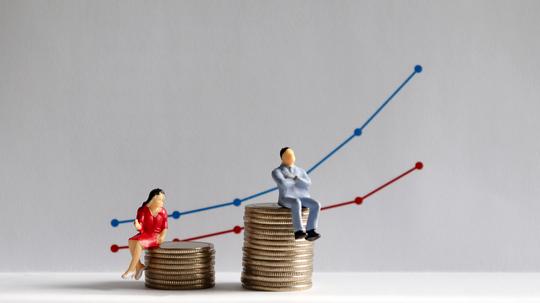
The #MeToo movement, originally started by Tarana Burke in 2006, went viral on social media in October 2017. Since then, its impact has been quantifiable, as measured by the Equal Employment Opportunity Commission (EEOC) -- The Commission said that it saw about a 12 percent increase or 7,500 harassment complaints filed from October 2017 to September 2018, compared to 2016.
But as a rising tide lifts all boats, the movement's impact trickled down to other aspects of corporate America -- like hiring. New data from Boston-based recruitment marketplace provider Scout Exchange found a 41 percent spike in the number of women hired for executive roles paying more than $100,000 a year.

The study also focused on the pay gap between women and men in different sectors and found a 22 percent pay gap across job roles in engineering, human resources, clinical jobs, sales, administration and marketing. While the average salary earned by men was $110,000, for women it was $90,000.
What's interesting however is that the parity is higher for some of these than others. Sales, marketing and administration, for example, reflected a wider gap. Women professionals in marketing roles made 73 percent of what their male counterparts did. For administrative roles, women made 83 percent compared to men and in sales, the number was 84 percent, compared to men's salaries. The smallest differences in pay were found in IT and engineering roles. Scout Exchange collected from its platform that's used by employers and recruiters over the past 18 months.
Salaries in tech might be catching up but what about the parity in employee equity? In September this year, a study released by Carta, a Palo Alto, Calif.-based company that helps startups manage employee and investor equity, female employees at startups own 47 cents for every dollar of equity a male employee owns.
Massachusetts, however, has taken the lead on closing this gap. The state's equal pay act went into effect in July this year. Shortly after, Mayor Marty Walsh spearheaded the Boston Women’s Workforce Council initiative, which is a public-private partnership between the mayor’s office and the Greater Boston business community dedicated to closing the gender pay gaps in Boston by removing visible and invisible barriers to advancement for women in the workforce.
The first task of the council is to get more employers to sign the 100% Talent Compact to commit to performing an internal assessment to see if gender-based disparities exist, and subsequently creating and implementing a plan to address them, along with contributing to the BWWC’s aggregate analysis of the Greater Boston gender pay gaps by race and job category.








